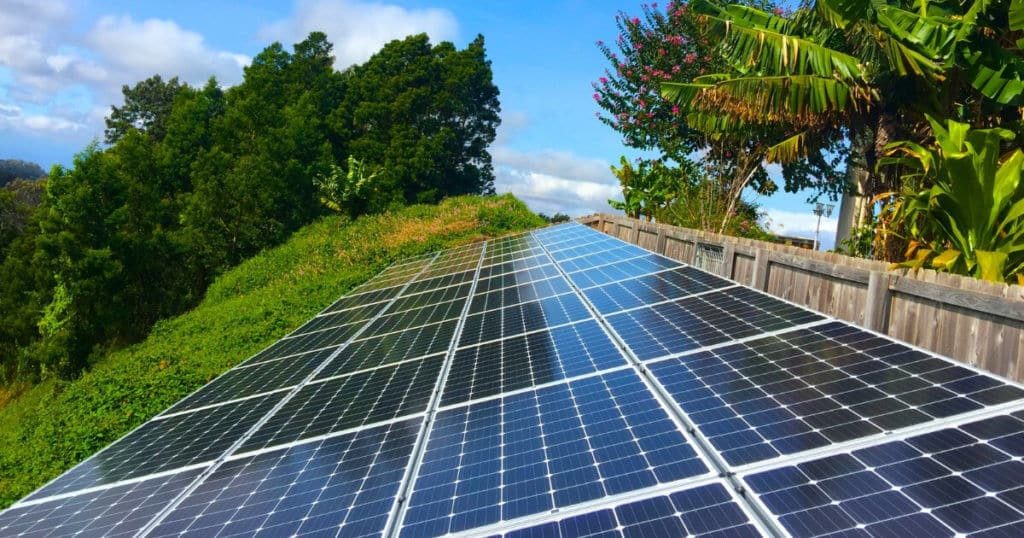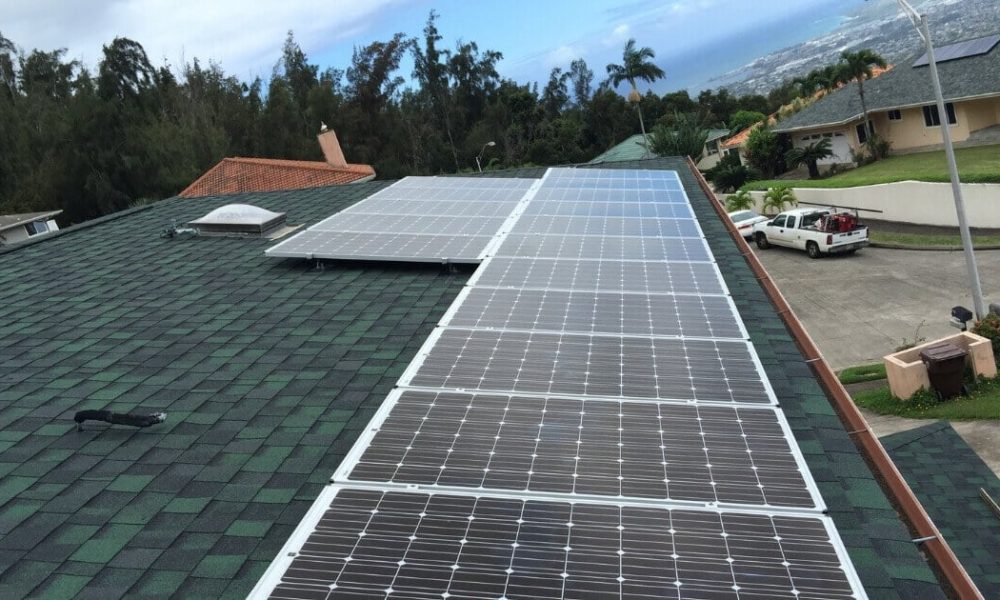Here’s a question we often get asked: can you still generate solar power in Hawaii on cloudy days?
Solar power in Hawaii is quite a debated topic. Some homeowners and business owners cannot wait go solar! Others though, need a little bit more convincing.
While everyone knows that going green is one of the best long term decisions you can make when it comes to generating electricity, not everyone is 100% sure that a PV system is really worth it.
So, let’s imagine that you already have a solar system. But one day, the sky fills with clouds and everything around goes dark. What happens? Can you still generate solar power in Hawaii? How much?
Let’s take a closer look at what happens to your PV system if clouds are in the way or if it rains.

Do clouds affect solar power in Hawaii?
While Hawaii is actually a sunny state, there are still plenty cloudy days here every year. That said, everyone who is still learning about a solar system works must wonder what happens if the Sun suddenly stops to shine.
Will you still be able to produce electricity? Would you need to power your home from the grid?
While of course, solar panels need to “see” the sunlight to produce energy, it’s important to point out that cloudy days can indeed affect the efficiency of a PV system, but that doesn’t mean your solar panels will stop working!
To give you an easy example: have you ever got a sunburn at the beach, on a cloudy day? Well, solar panel systems still work when it’s cloudy outside. The only drawback is that they will generate less power. How much less depends on the quality of your system.
How do solar panels work if the Sun doesn’t shine?
Solar radiation can still pass through the clouds and reach your panels. But depending on their quality and efficiency, the energy production may drop anywhere from 10% to 25%.
When it comes to generating solar power in Hawaii, you should know that solar panels work by converting sunlight into DC power. Your inverter then takes over and converts the DC power into AC power, which your appliances, your gadgets and devices need in order to function.
Now that you know how a solar system works, it’s important to point out that if the weather is mainly sunny, a solar system is designed to produce a lot more electricity than your home really needs. That said, some people prefer to send the extra energy back to the grid for economic benefits, while others will store the excess into their battery for later use.
All in all, in order to produce solar power in Hawaii, you don’t actually need the Sun to shine to all day long or for the weather to be hot. While partial shading can decrease the efficiency of your panels, PV systems are engineered to continue to produce energy.
For more information on solar power in Hawaii, contact Pacific Energy today! We’ll tell you all about the efficiency of a solar PV system and why you should consider investing in one right away.

